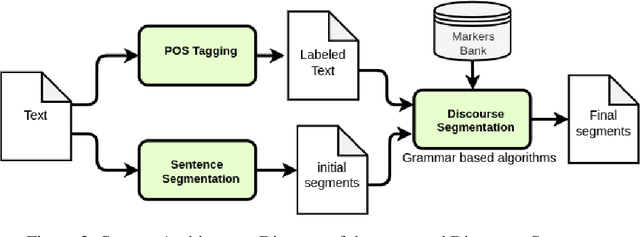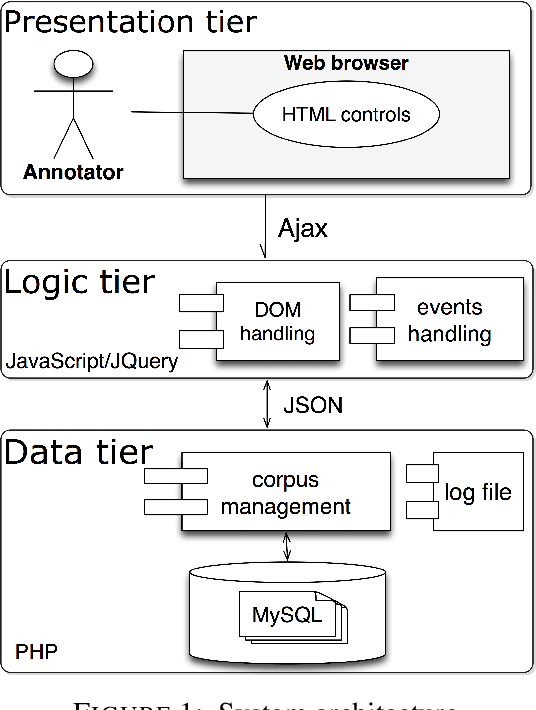Alejandro Molina-Villegas
Automatic Discourse Segmentation: an evaluation in French
Feb 10, 2020



Abstract:In this article, we describe some discursive segmentation methods as well as a preliminary evaluation of the segmentation quality. Although our experiment were carried for documents in French, we have developed three discursive segmentation models solely based on resources simultaneously available in several languages: marker lists and a statistic POS labeling. We have also carried out automatic evaluations of these systems against the Annodis corpus, which is a manually annotated reference. The results obtained are very encouraging.
Active learning in annotating micro-blogs dealing with e-reputation
Sep 25, 2017



Abstract:Elections unleash strong political views on Twitter, but what do people really think about politics? Opinion and trend mining on micro blogs dealing with politics has recently attracted researchers in several fields including Information Retrieval and Machine Learning (ML). Since the performance of ML and Natural Language Processing (NLP) approaches are limited by the amount and quality of data available, one promising alternative for some tasks is the automatic propagation of expert annotations. This paper intends to develop a so-called active learning process for automatically annotating French language tweets that deal with the image (i.e., representation, web reputation) of politicians. Our main focus is on the methodology followed to build an original annotated dataset expressing opinion from two French politicians over time. We therefore review state of the art NLP-based ML algorithms to automatically annotate tweets using a manual initiation step as bootstrap. This paper focuses on key issues about active learning while building a large annotated data set from noise. This will be introduced by human annotators, abundance of data and the label distribution across data and entities. In turn, we show that Twitter characteristics such as the author's name or hashtags can be considered as the bearing point to not only improve automatic systems for Opinion Mining (OM) and Topic Classification but also to reduce noise in human annotations. However, a later thorough analysis shows that reducing noise might induce the loss of crucial information.
* Journal of Interdisciplinary Methodologies and Issues in Science - Vol 3 - Contextualisation digitale - 2017
 Add to Chrome
Add to Chrome Add to Firefox
Add to Firefox Add to Edge
Add to Edge